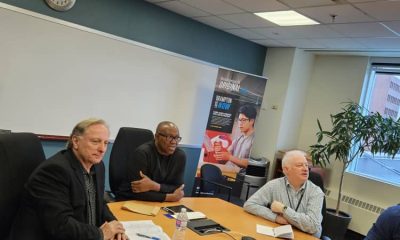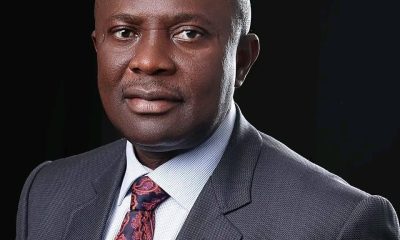Some stakeholders in Jigawa on Monday expressed the strong hope of achieving the national Malaria elimination targets, given the existing capacity and improved skills among its health workers.
They made their views known at the Support Malaria Programme Phase II (SuNMaP) final close out dissemination meeting in Dutse, the state capital.
The National Daily reports that the object of the meeting was the presentation of findings to stakeholders, progress accomplishment and project sustainability by focal persons, as well as soliciting for increased domestic funding for malaria elimination.
Abubakar Musa, the Supply Chain Officer, Malaria Consortium, noted in his presentation that the state stood to gain an increase of N5.6 million for its malaria control programme, if one per cent of its projected revenue of N3.7 billion for 2020 to 2022 were allocated to the programme.
“Jigawa State is projected to have a total revenue from VAT, FAAC, IGR and special releases of N119.1 billion in 2020, N117.6 billion in 2021 and N132.9 billion in 2022.
“This implies the potential of additional revenue of N13.8 billion in three years from these sources, and a fiscal space of N276 million for malaria control programme in the next three years,” he added.
Musa pointed out that although there were currently 38 donor partners in the State, the domestication of donors was still a major challenge.
“The State government does not receive or have records of donors’ budget and work plans and this affects planning.
“Jigawa State Government is making considerable efforts to comply with guidelines provided by Affordable Medicines Facility – malaria (AMFm).
“The state operates an electronic drug revolving fund system for antimalarial medicines. Drugs are supplied directly to health facilities from the central medical store and decision on quantification is made based on issue data and 10 per cent projected increase in utilization,” he explained.
He announced that the state had spent N12.7 million for flag-off, procurement of ACT, RDT, transportation of SPAQ, (Demand creation) of SMC 2021.
According to him, N 8.8 million is for LLIN campaign for 2021, adding that all the 27 local governments have been directed to release N50,000 to support the transportation and other logistics for SMC commodities.
Musa also said that the state had procured malaria commodities worth N1.5 million and created a budget line for malaria elimination in its 2021 budget, while providing free MNCH services worth 75 million in about 22 Health facilities had increased the availability of free malaria commodities across the state.
In addition to that, the state government had included malaria interventions on the list of services to be provided by the state’s health insurance scheme.
“The state has established integrated procurement and supply chain processes between programmes (Public & DRF system); this will help in reducing stock outs of malaria commodities across the state.
“It has also established a sustainability committee on malaria which provides leadership on malaria elimination sustainability issues in the state,” Musa said of the many other interventions.
Earlier, in his remarks, Mr Kola Maxwell, Programme Director for Malaria Consortium in West and Central Africa, expressed happiness on how the programme had been yielding results in the past six years in Jigawa.
“I have been privileged to be coming to Jigawa, for over 20 years now and on several projects, and each time I come, I see progress.
“The first time I came before I joined Malaria Consortium, I was impressed with the health system.
For this third period, Maxwell said they had been discussing with the government on how the malaria programme could be made sustainable in the state.
He expressed appreciation over the nature of the debate and actions witnessed at the stakeholders’ meeting, which he described, as a good testimony of everybody’s commitment in the state.
Maxwell noted that the operational challenges in Jigawa were very similar to the ones in a state in Central Africa, regarding the issue of capacity and the problem of skills.
He, however, expressed happiness that despite the challenges, the programme had been given serious support and attention by both the state and the federal governments.
“You know that the reason why this programme is going is because of the global economic challenges; and Nigeria as a country is not immune to that and so the economic challenge is also really posing a serious issue to sustainability.
The issue of malaria is a mixed message. For example, on one side if we can actually collaborate, sustain our gains and imagine, we can make faster progress and eliminate malaria, it will mean that some of the burden that the health system is carrying, one of them is removed,” Maxwell added.
In his remarks, Dr Umar Namadi, the Public Health Director, in the state Ministry of Health, also appreciated how the programme was yielding results in the state.
” We have seen it and the results we can see from the presentation, we see variations from where they started and where we are today. That shows there is result in that direction and we have also outlined whatever is needed to continue.
” So, we are going to include it from next year’s budget, so that all the activities that have been in place are continuing in the state,” he said.

 Business2 days ago
Business2 days ago
 Latest1 week ago
Latest1 week ago
 News7 days ago
News7 days ago
 Politics2 days ago
Politics2 days ago
 Latest6 days ago
Latest6 days ago
 Business5 days ago
Business5 days ago
 Business3 days ago
Business3 days ago
 Featured6 days ago
Featured6 days ago



